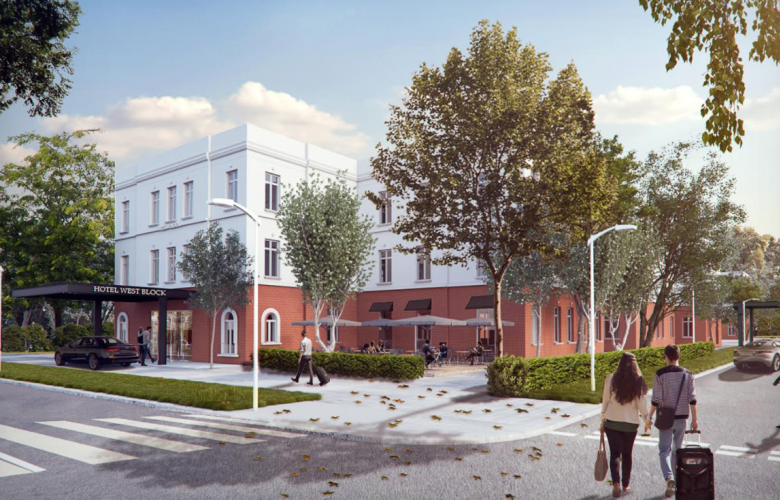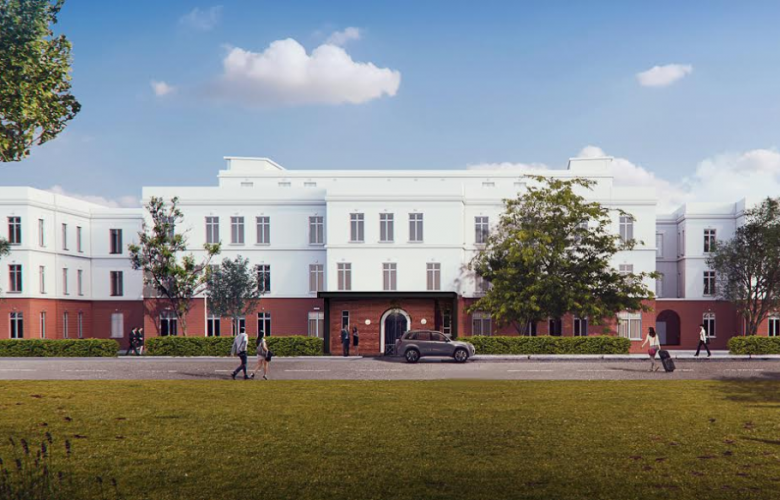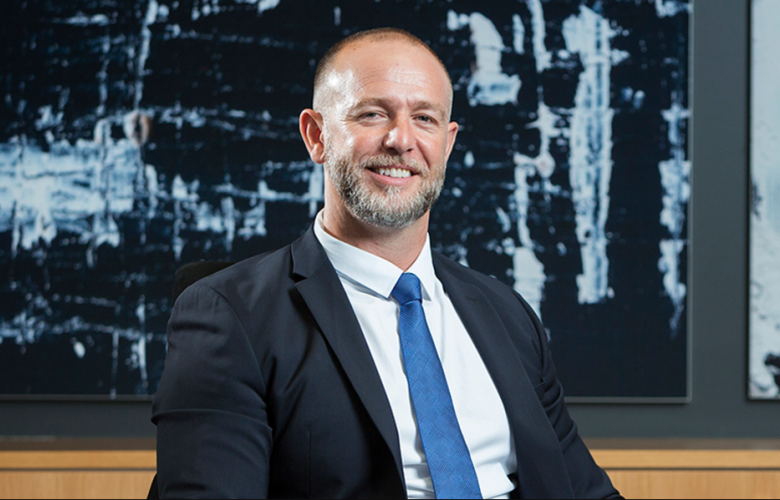New luxury hotel for Canberra's historic West Block buildings
Contact
New luxury hotel for Canberra's historic West Block buildings
The historic West Block buildings in front of new Parliament House will be restored and re-purposed to a magnificent luxury hotel following Geocon’s $6.25 million acquisition of the site from the Commonwealth.
Geocon Managing Director Nick Georgalis said, “This new hotel will celebrate the heritage aspects of the buildings, inside and out, and, for the first time, open up these historic structures to the public.”
“Given its location and history, this hotel has the potential to be talked about all over the world, to be one of those ‘must-see’ icons when people visit Australia’s national capital, like Raffles in Singapore or the George V in Paris.”
Designed by architect John Smith Murdoch, West Block was one of the earliest buildings erected in the Parliamentary Triangle of the ‘new Federal Capital’. It opened for government use in 1927 as part of the Secretariat buildings and was once home to the National Library, the Crown Solicitor's office and the Australian Electoral Commission. It is currently vacant. Part of the site, known as The Dugout, was a World War II bomb shelter, which was used to code and decode messages between Australian prime minister John Curtin and British prime minister Winston Churchill.
“We haven’t been inside The Dugout yet, and we can’t wait to get in there to see what sort of amazing atmosphere it has, potentially for a bar or other purpose that embraces and shares its historic features with visitors,” said Mr Georgalis.
“I was interested to learn that the architectural nature of these buildings was quite different from the buildings envisaged for the Parliamentary Triangle by Walter Burley Griffin, the American architect who won the international competition held in 1912, for the design of Canberra. They are, nonetheless, fine examples of Federal Capital Architecture, a version of the Inter-War Stripped Classical style, and exhibit classical-style proportions and features of arcaded entrance screens and courtyard arrival points. These wonderful heritage aspects will be central to the re-development, as will the interior references to government and political life in Australia at the time.”
Mr Georgalis said Geocon was one of the few developers in Australia with the capability and credentials to undertake a sympathetic adaptive re-use on West Block.
“We successfully re-purposed Juliana House, a 1970s government office block in Woden, into Australia’s first green star-rated hotel, and an award-winning sustainability project,” he said.
In addition, world-renowned architects Fender Katsalidis, the creative powerhouse behind Hobart’s MONA and Canberra’s NewActon precinct, will design the new hotel. Fender Katsalidis are the only living architects to have converted a John Smith Murdoch building into a hotel, through their work reimagining the former Acton House into The Diamant Hotel, NewActon (now Peppers Gallery Hotel).
“I want to dispel the concerns of those worried about the future of these buildings,” said Mr Georgalis. “We are very excited to have the opportunity to create another unique property which both preserves and celebrates important aspects of Canberra’s early history, and we take this responsibility very seriously. We also want Australians – the original owners of this property – to have maximum opportunity to enjoy its history and significance, as they are able to do with the re-purposed Old Parliament House.”
Geocon owns and operates the Abode Group of hotels. West Block will be one of the first of the new deluxe offerings the group will bring to Canberra, and will deliver an international-standard luxury experience.
“Delivering another world-class, luxury property will enhance the range of up-scale hotel offerings in the ACT, in addition to Geocon’s recent announcement of a luxury hotel to be built in the CBD at 70 Bunda Street,” Mr Georgalis said.
“There could not be two more divergent properties in terms of look and feel, however what they will both do is deliver an unprecedented level of luxury to the hotel market in Canberra, and help meet the demand for top-end accommodation, particularly catering for the increasing number of international travellers.”
This article was first published in The Hotel Conversation.
See also:
Unexpected cities prove to be strongest hotel performers
Mantra converts Canberra office tower to hotel for $19 million








